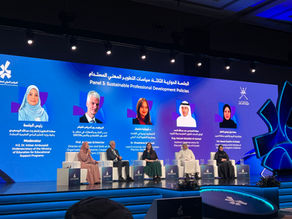Beyond the Classroom: An Advocate’s Commitment to Fostering SDGs
- SDSN Youth

- Nov 30, 2022
- 4 min read
Updated: Dec 11, 2022
By Jerome L. Duque, Global Schools Advocate from the Philippines

For a decade, I have been a firm believer in formal education as the only way to create a meaningful learning experience. Despite the many innovations I introduced in my classes, I seem to rally behind the traditional setup of the teaching and learning process where the teacher curates the overall design to produce expected outcomes, which are heavily dependent on my preconceived notions of how learning actually takes place.
Despite this boxed view of education, I continue to receive positive feedback on students’ academic performance. Seemingly, I have attained what I set out to achieve in the first place: transformation. Why would I change my paradigm if I’m getting favorable results?
Since I started working with the Global Schools Program, I realized one important thing which I have been missing or denying for long: I’m not reaching as many students as possible. While stuck on my table with a marker in my hand, I wonder if a teacher is only defined by his/her work in the conventional sense. It was when I had the courage to take a leap of faith that I found my true calling.
Working at Tarlac Agricultural University’s External Linkages and International Affairs allowed me to push the boundaries of my capabilities as a teacher. My new home has made me more confident in exploring other areas where I can contribute as a teacher, sustainability advocate, and new media enthusiast.
Ensuring the realization of the United Nations 2030 Agenda for Sustainable Development rests on one key premise: fostering dynamic inter-institutional collaboration. The vibrant cooperation and open communication among members and sectors of the global community are crucial to attaining the 17 Sustainable Development Goals (SDGs) and achieving a healthy, peaceful, and prosperous future for all.
It is with this notion that the partnership between TAU and Philippine-based Sustainable Energy and Enterprise Development for Communities (SEED4Com) initiated the Global Goals Cross Sectoral Dialogues - an avenue where pundits, volunteers, and ordinary people discuss opportunities and challenges in the integration of SDGs in their programs and advocacies via plenary sessions. Participants were able to interact with SDG Advocates and share their insights about the most pressing issues concerning the SDGs.
There was also the International SDGs Bootcamp (ISB), a multi-sectoral initiative led by TAU in support of the 2030 Agenda for Sustainable Development. ISB does not only seek to address environmental/ecological concerns through intervention projects. It also hopes to create a community where stakeholders can work collaboratively to solve some of the ills of contemporary society. This project is the closest to my heart as it also involves the youth and urges them to take an active part in securing a better future for themselves and the next generation.
The world’s most pressing problems require local interventions. Both the traditional and new media are vital in communicating possible solutions to sustainability problems. Hence, to include all sectors, there is a need to disseminate information (which may not be available to the public) through leading social media platforms.
The first episode of Stories of Sustainability featured a young farmer who used diversified, integrated, and organic farming on his family’s farm to produce harvests that were sold to local traders. From rural agriculture, we moved to forest stewardship at TAU Forest Reserve, where sustainability heroes are active in protecting the environment while promoting countryside development.
We also met upland entrepreneurs specializing in creating humble walis tambo and selling root crops. They even provide livelihood opportunities to the indigenous peoples. Continuing on our upland journey, we saw how government-supported business ventures helped in establishing cooperatives for the locals.
Education remains the greatest equalizer. Therefore, bringing schools closer to the underprivileged is the first step towards changing their lives for the better. We have also witnessed how the government and the private sector became instrumental in improving transportation and extending basic services to highland communities.
Inspired by the Agri-Innovation Grants and entrenched in the tradition of ISB and other SDG-related activities of ELIA, the IDEAS (Innovation and Development Empowering Adaptable and Sustainable Strategy) Challenge Grant (IDC) is TAU’s response to the growing clamor for greater and more dynamic participation from the youth sector.
Initiated by ELIA in cooperation with the Office of the Student Services and Development (OSSD), IDC shall provide an avenue for a vibrant collaboration among the newly inducted officials of TAU’s recognized student organizations, sustainability advocates, and project development experts.
Tapping into the youth’s immense potential as 28 percent of the country’s population is composed of the youth sector belonging to the 10 - 24 age range. They have the capacity and the will to help rebuild the nation and shape their future. Such impact will be significant to guarantee that the next generation will continue to play a pivotal role in their immediate neighborhood or the global community.
I may have ditched my obsolete perspective on pedagogy, but I also embraced the limitless prospects that await learners coming from different backgrounds, in or out of the school, whether too young or too old.
Through the programs I help create, I am now finally fulfilling my dream to become an effective catalyst in bringing about much-needed change as I call the world my classroom and all those willing to participate, my students, in a school I now simply call life.

















God bless sir jerome 💚🌻